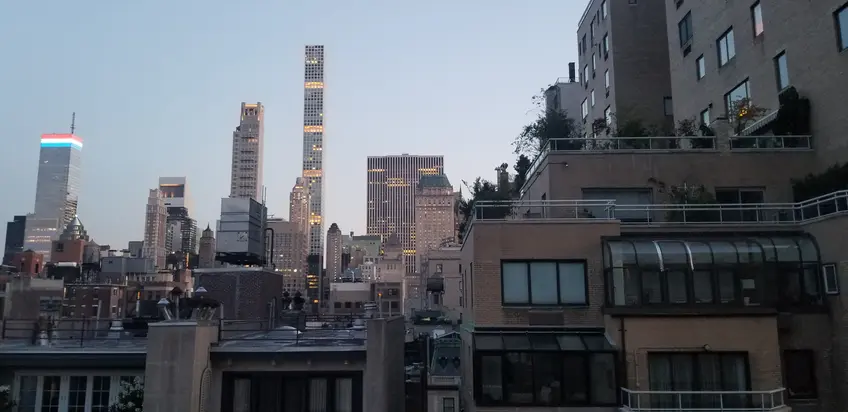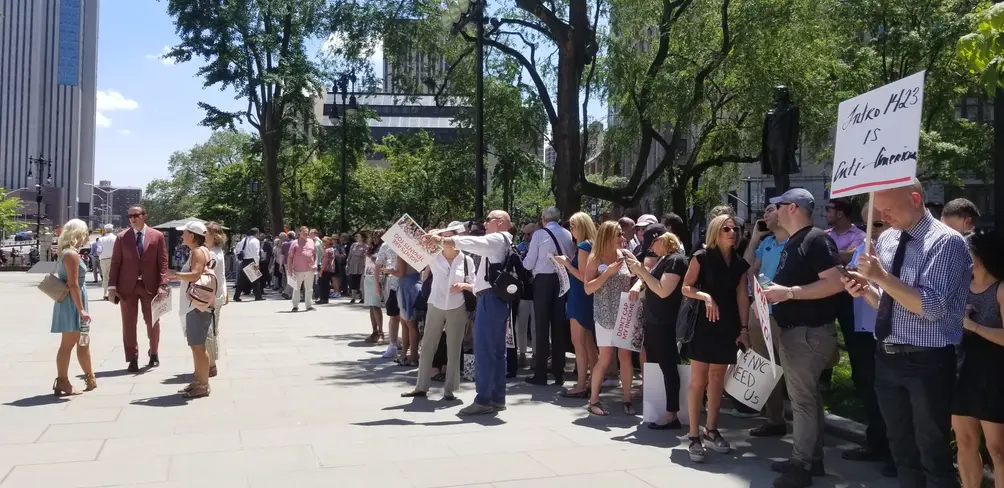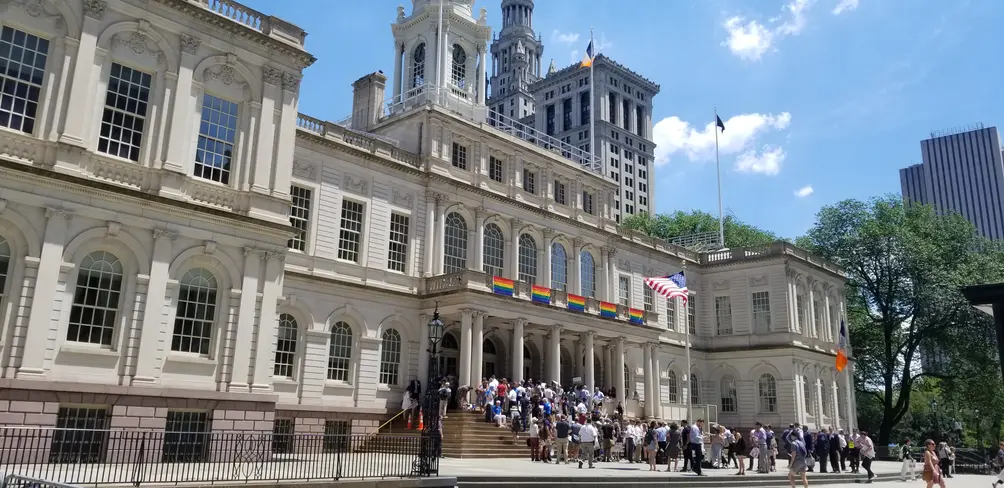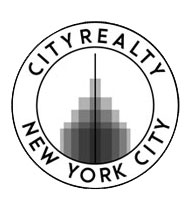 Apartments buildings on the New York skyline. Credit: Vitali Ogorodnikov
Apartments buildings on the New York skyline. Credit: Vitali Ogorodnikov
The lawsuit comes on the heels of the recent rent law package signed by Governor Cuomo in June, officially known as the Housing Stability and Tenant Protection Act of 2019, which strengthens existing rent control and rent stabilization laws. At the time of the Act’s passage, the New York Times quoted Adriene Holder, a lawyer at the Legal Aid Society, praising the legislation as one that would “reverse decades of rampant landlord abuse and enact much-needed protections for hundreds of thousands of tenants.” In contrast, Joseph Strasburg, the president of the Rent Stabilization Association, cautioned that New York City “will see a slow erosion in the quality of housing going out in three or four years.”
 Rent law reform rally at City Hall on June 27th. Credit: Vitali Ogorodnikov
Rent law reform rally at City Hall on June 27th. Credit: Vitali Ogorodnikov
Yesterday’s lawsuit takes broader aim at rent control laws, which reverberate to the foundations of our political system. However, it echoes a similar underlying theme, partaking in the debate over the fundamental role of the government, which ought to seek a proper balance between personal rights and societal protections.
A notable opposition attempt took place in 2012, when the Supreme Court declined to hear a rent control suit by James D. Harmon Jr. and Jeanne Harmon, owners of a five-story Upper West Side brownstone, which alleged that regulations that force acceptance of below-market rents represented an unconstitutional taking of their property. A judiciary panel concluded that the city’s regulations “did not constitute permanent physical occupation of the Harmons’ property,” citing owner options of demolition (as long as they did not replace it with housing), apartment reclamation for their own use, and eviction of “an unsatisfactory tenant.” In turn, Mr. Harmon countered that “the Constitution does not allow the government to force us to take strangers into our home at our expense for life.”
In the current case, the plaintiffs have full confidence that the case will reach the Supreme Court. The New York Times quotes Jay Martin, the executive director of the Community Housing Improvement Program, who states that “it’s time for the law itself to have its day in court,” citing the need for a “real discussion about whether or not this is the best system to provide affordable housing in New York.”
Furthermore, the suit claims that the legislation worsens the housing crisis, in part because of the absence of income caps for rent-regulated tenants, which unfairly benefits wealthy It says that rent regulations exacerbate the city’s housing shortage and that, because there are no restrictions on the incomes of rent-regulated tenants, the system allows wealthy New Yorkers to benefit unfairly.
The lawsuit opens the next chapter in a saga that persisted on the New York State political landscape for centuries in some form or another, predating even the rent control laws at hand. Today, the debate is more pressing than ever, as it affects 2.4 million residents in around a million apartments. In the meantime, the ongoing political battle stays hotter than the city’s sweltering July heat.
 Rent law reform rally at City Hall on June 27th. Credit: Vitali Ogorodnikov
Rent law reform rally at City Hall on June 27th. Credit: Vitali Ogorodnikov


 6sqft delivers the latest on real estate, architecture, and design, straight from New York City.
6sqft delivers the latest on real estate, architecture, and design, straight from New York City.
